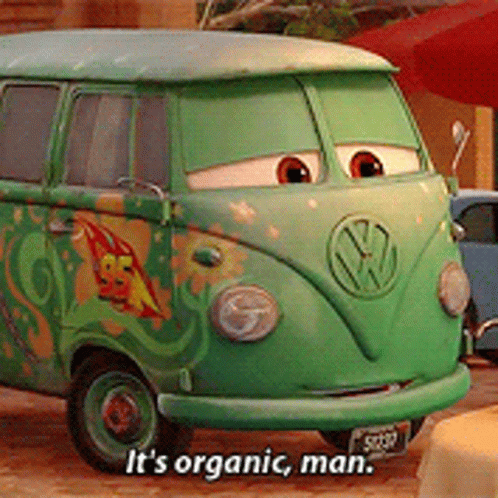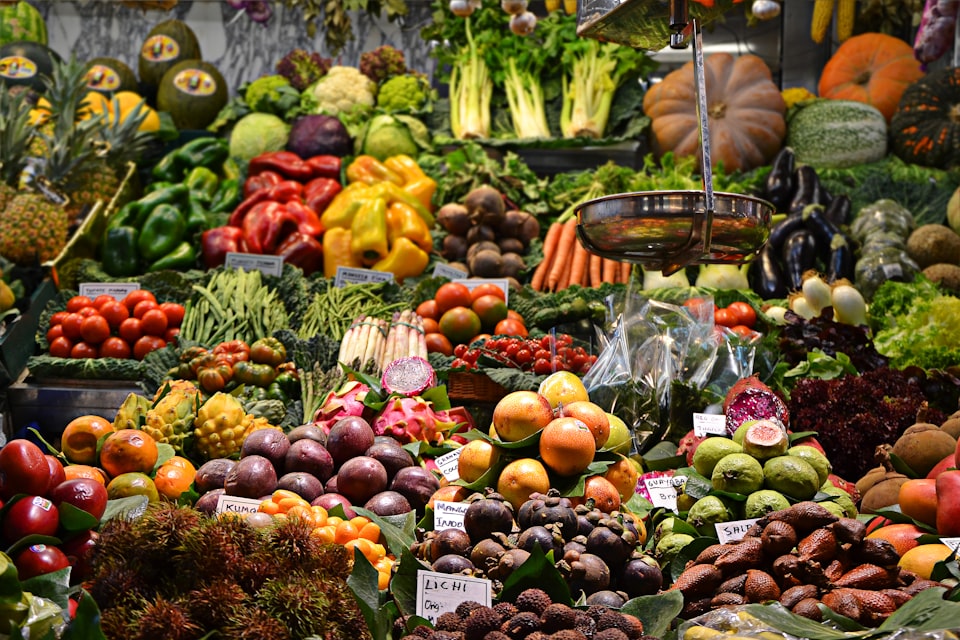Are organic food sources running low? Every grocery store visit, I walk into produce, hoping for a great fruit selection, but I always leave disappointed. There used to be organic fruit with different stickers, packaging, and containers representing small, local, and even international farms. But now, I only see organic fruit with store-brand labeling. Now I'm worried about the future of organic and the future of food. It starts with fruits and vegetables, but the feed for chickens and cattle is next. And then the chickens and cattle are next. When does organic turn into eating dirt to survive? We're telling you to eat it now.
Every morning I add frozen berries and banana slices into my healthy gut and energy oatmeal bowl. I chase every dinner with a fruit that's in season; mangos, pineapples, grapes, and pomegranates offer sweet, juicy, and robust flavors to end my day feeling grateful for the simple things in life.
I shop organic when it makes sense. If I'm biting into the skin of a fruit or vegetable, nine out of ten times, I'm going organic. Eggs and chicken cuts are always organic, and beef is organic when it's on sale. Organic is about health as much as it's about the flavor, vibrant color, and satisfaction of a good meal.
Choices
The Kroger Corporation, which owns 13 food store brands in the United States, is celebrating ten years of its Simple Truth and Simple Truth Organic brand. Being desperate I ate their branded organic grapes once. I could taste the pesticide pesidue. I would rather eat non-organic options.
Pesticides is a general term that includes:
- Antimicrobials to control germs and microbes such as bacteria and viruses.
- Disinfectants to control germs and microbes such as bacteria and viruses.
- Fungicides to control fungal problems like molds, mildew, and rust.
- Herbicides to kill or inhibit the growth of unwanted plants, also known as weeds.
- Insecticides to control insects.
- Insect Growth Regulators to disrupt the growth and reproduction of insects.
- Rodenticides to kills rodents like mice, rats, and gophers.
- Wood Preservatives to make wood resistant to insects, fungi and other pests
But they aren't just on the fruits and vegetables; they're in the soil, farm water runoff, and even the air. An NBC News analysis of 2019 USGS agricultural glyphosate data found an average of almost 130 pounds of glyphosate herbicides were sprayed per square mile in U.S. counties.
So even if a fruit is grown "organic," if it's near non-organic fruit, it's probably absorbing some pesticide residue.

Clean Eating for the Future
Organic doesnt reach some supermarkets at all. It's too expensive and even if you only eat organic food, you're only decreasing your risk. Cr exhaust, microplastics, lead water pipes; contaminants are everywhere.
So shop organic when it feels realistic. If organic disappears from the supermarket, then I need to visit the Farmers' Market. My support for the organc farmer today, creates a future for organic food. I love seeing the dirt on my fruits and vegetables; I love rich orange egg yolks. The dirt tells me it's authentically grown, and the orange color lets me know there are richer nutrients.
No color. No Flavor.
— Gordon Ramsey





